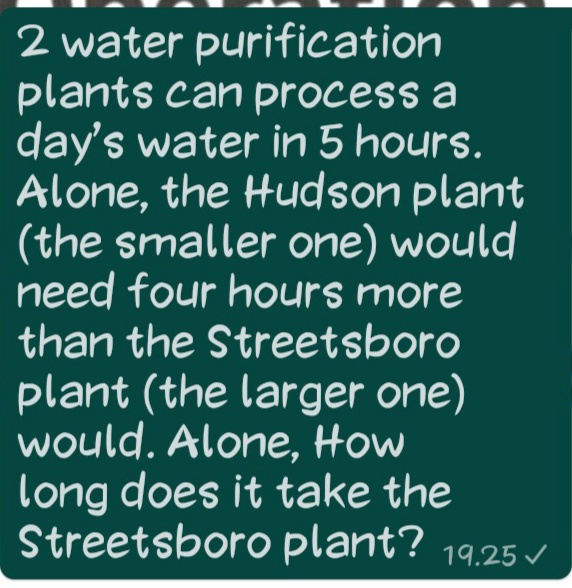
AlgebraQuestion and Answers: Page 269
Question Number 95309 Answers: 1 Comments: 0
Question Number 95294 Answers: 1 Comments: 2
Question Number 95277 Answers: 2 Comments: 4

Question Number 95269 Answers: 0 Comments: 3

Question Number 95262 Answers: 3 Comments: 0
Question Number 95232 Answers: 3 Comments: 6

Question Number 95222 Answers: 1 Comments: 0
Question Number 95182 Answers: 1 Comments: 0

Question Number 95167 Answers: 0 Comments: 2
Question Number 95164 Answers: 0 Comments: 3
Question Number 95159 Answers: 1 Comments: 1
$$\sqrt[{\mathrm{3}\:\:}]{\mathrm{8}−\mathrm{x}}\:+\:\sqrt{\mathrm{x}}\:=\:\mathrm{2}\: \\ $$
Question Number 95158 Answers: 0 Comments: 0
Question Number 95127 Answers: 0 Comments: 1

Question Number 95106 Answers: 2 Comments: 0
Question Number 95093 Answers: 2 Comments: 0
Question Number 95062 Answers: 0 Comments: 7
Question Number 95048 Answers: 0 Comments: 1
Question Number 95014 Answers: 0 Comments: 10
Question Number 94960 Answers: 2 Comments: 0

Question Number 94874 Answers: 1 Comments: 1

Question Number 94868 Answers: 0 Comments: 5

Question Number 94835 Answers: 0 Comments: 0
Question Number 94818 Answers: 1 Comments: 7
Question Number 94811 Answers: 3 Comments: 0
Question Number 94786 Answers: 0 Comments: 1
Question Number 94780 Answers: 0 Comments: 1
Pg 264 Pg 265 Pg 266 Pg 267 Pg 268 Pg 269 Pg 270 Pg 271 Pg 272 Pg 273
